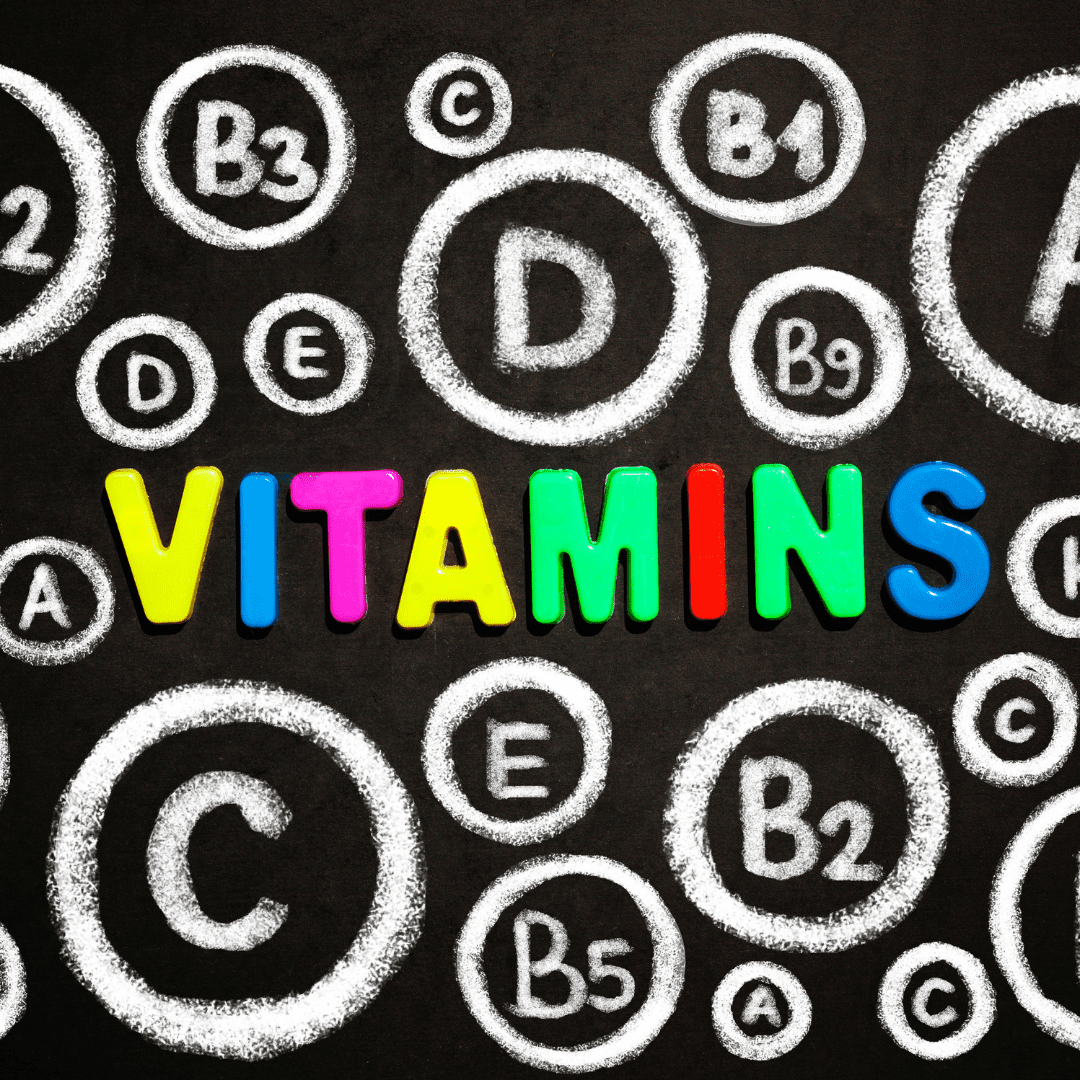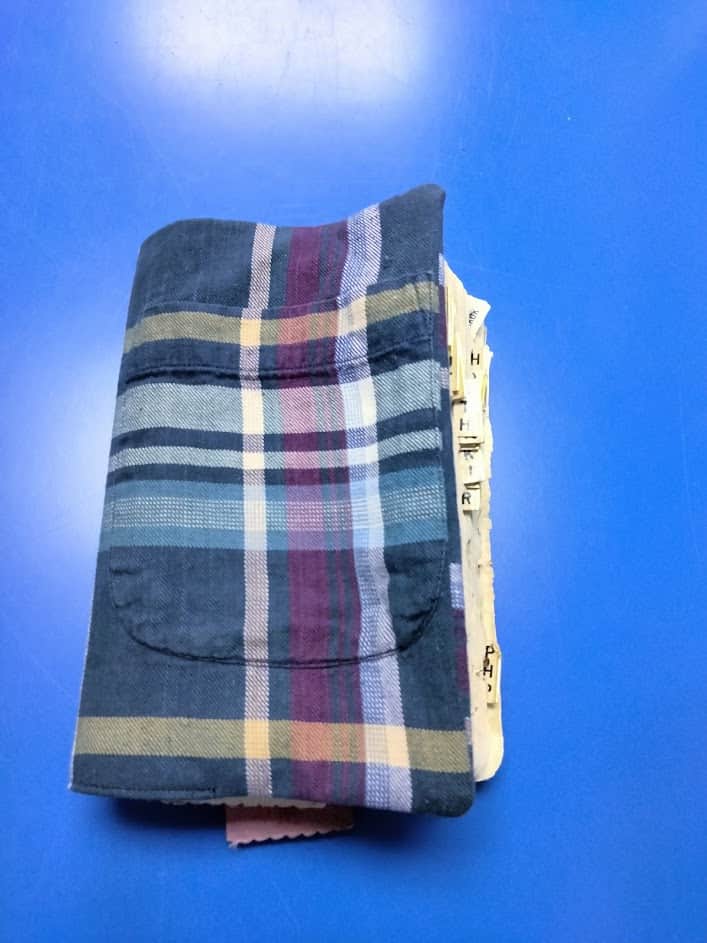Are Dollar Store Vitamins any Good?
Eat right, exercise a bunch of times a week, and take your daily vitamins…..these are the keys to a healthy life style right? I am all for eating less junk, being more active, and popping magic pills every day to insure that I stay healthy!
According to the CDC, almost 58% of Americans over the age of 20 take a dietary supplement (aka vitamin). That number increases to 80% if you are over 60 years old. The most common types of supplements taken are multivitamins, vitamin D, and Omega-3 fatty acids. That is a lot of vitamins being bought every year, but do we really need to buy all these vitamins for our health, and does it really matter how much we spend? Let’s explore that further!

Do I really need to take vitamins?
Just like with our spending habits, most people take daily vitamins on autopilot because they think they will improve their health. According to Consumer Reports, studies have found no measurable benefit from taking a multi-vitamin every day.
Now the exception to this is if you are prescribed a certain vitamin or mineral by a physician. At certain times of my life, doctors have prescribed magnesium and B12 to help with deficiencies.
The only way to know that you are lacking in certain vitamins and minerals, is to take a blood test. These tests can tell what substances you may not have enough of to support your body.
Keep in mind that some minerals and vitamins are not found in the blood like magnesium, so these tests won’t accurately show that either. In these cases, it is mostly trial and error based on known symptoms that are affecting you.
If you haven’t spoken with your doctor about your daily multi-vitamin use, it may be worth seeing if you even need to supplement.
Does it matter what brand of Vitamins you use?
All vitamins and minerals sold in the US are regulated by the Food and Drug Administration, but they are not as strictly regulated as medications. The weird part is the FDA puts the responsibility on the manufacturers to test and ensure a product is safe before it is placed on the market. The FDA does no testing at all, unless complaints are filed against a product.
ConsumerLab.com which does independent product testing, found that 44.4% of vitamin products had different levels of the vitamins than what their packaging claimed. So, in some cases they had less of the stated levels and other times they had way higher than what is considered safe levels in the multivitamins.
The products that were tested included major name brands and store brands like Bayer, GNC, CVS brand, Walgreens, and NatureMade.
Due to this testing, I think it is pretty safe to say that the brand of vitamins that you use is not an indicator of quality or effectiveness.
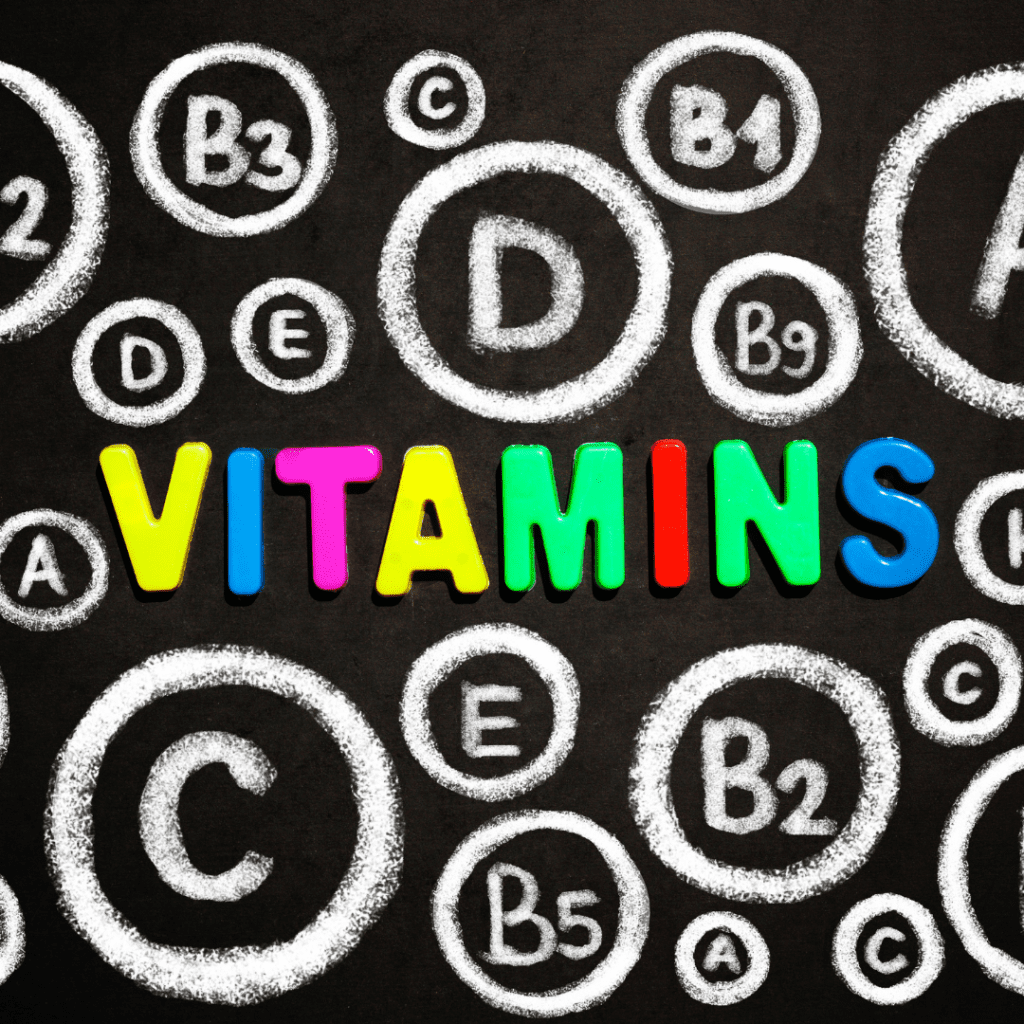
Are all vitamins equal?
Vitamins normally are found in plants, animal products (meat), or can be made synthetically in a lab. There is no chemical difference between vitamins that are found “naturally” and ones that are produced synthetically in a lab.
During the manufacturing process, additives are included in the vitamin mix to produce the tablets, pills, or capsules. Some manufacturers also add fillers to make the capsule look fuller, add flavorings for taste, and even add wax to make the pill look more attractive. Some of these additives can actually cause side effects like headaches or an upset stomach.
In general, all vitamins are the same, the real difference is how they are manufactured and what additional ingredients are added to the tablet, pill, or capsule.
Are generic vitamins just as good?
We know now that all vitamins are basically created equal, and every manufacturer basically starts with the same vitamin ingredients. According to a New York Times article, Dr. Rimm (studies effects of vitamins) says that levels of different vitamins in the blood were the same whether the person took a name brand or generic brand vitamin.
If there is no difference in the amount of vitamins found in the blood with brand name or generic brands, then why do consumers buy the more expensive brand? Marketing! Yes, consumers buy the more expensive brand because they are told to with commercials/advertising, fancy packaging, and endorsements by well known doctors and celebrities.
That means that the reason those brand name vitamins are more expensive is because they have to pay back the cost to make those commercials, the cost to design and make the packaging, and to convince celebrities and doctors to promote their product. That cost is pushed onto the buyer and has no real basis on the quality or effectiveness of the vitamins that you take.

How do I know if my vitamins are good quality?
Ok, so you went to the doctor, took a blood test, and found out that you do need a supplement or two. You are now ready to go buy some vitamins, but which ones?
The best indicator is going to be if it has been verified by USP or Consumer Labs. Unfortunately, only a small amount of available vitamin supplements has actually been tested by these two independent nonprofit companies.
These labs only certify products that have been tested to show the following:
- contains the ingredients on the label in the amount and potency stated.
- no harmful levels of the specified ingredients
- that the ingredients will breakdown and be absorbed within a certain specified time frame
- been made safely according to certain best use practices and guidelines.
Most of the supplements that have been tested by these companies are the major name brands and some major pharmacy house brands (CVS/Walgreens/Kirklands), so there are lots of generic brand labels that have never been tested for quality.
What to look out for when buying Vitamins?
Just because generic brands of vitamins haven’t been tested does not mean that they are not of good quality. Since we don’t have a little seal on the products to show that they have been tested, we have to dig a little further to see if the generic brands are worth buying.
Make sure when you are buying vitamins that:
- they are made in the USA (other countries regulations can be unclear or even worse than those in the US).
- claims listed on label as “works better than…” or “has no side effects” cannot be scientifically proven.
- when it comes to vitamins being labeled as “all natural” this does not mean safe.
How do you know if vitamins are working?
Just like the only way to know if you need to supplement with vitamins is a blood test, the only way to know if vitamins are working is to do a blood test as well.
Depending on your current health level it may make sense to be tested for vitamin levels every 3 months, 6 months, yearly, or every 5 years. Based on current diagnosed issues and overall health will determine when it is most appropriate to get tested.
Most vitamin deficiency tests are very inexpensive, are covered by basic insurance, and can be done in your doctor’s office with a finger prick. Some tests are processed in-house, and some are sent out to labs so it may take a few days to get results.

Best way to store vitamins
Ideally, the best way to store vitamins so they do not lose their potency is to put them in a dark place away from humidity like a drawer in your nightstand or in a linen closet.
The majority of Americans store their vitamins in the kitchen or bathroom out of convenience. Both of those locations are usually the most humid places in your home, so these are not good places to store vitamins.
Most manufacturers do put an expiration date or best use by date on vitamins, but these dates are not regulated or required by the FDA. Expired vitamins are not going to harm you, but they may not be as potent and therefore not as effective.
Signs that your vitamins have gone bad and shouldn’t be used:
- liquid or moisture on the inside of the bottle
- brown spots on the tablet or pill
Are Dollar Tree Vitamins Safe?
Over 20 years ago, Dollar Tree stores were found to carry unsafe products and this bad reputation has continued on to present time. The part no one ever talks about is that this was over 20 years ago, and the company has actually cleaned up its act. Any chain store found to continue selling unsafe products for over a 20-year span would no longer be in business.
Now if you go into a store that is dirty, disorganized, and visible stains everywhere, I probably will choose to shop elsewhere. Most Dollar Tree stores are actually well kept and organized. I would even go as far as saying most look better than some Walmart locations.
The products that Dollar Tree sells are usually off brands, discontinued brands, or overstock of major brands. Any vitamin supplements sold in the US regardless of where you buy them, still have to follow FDA standards. We know these standards aren’t super strict, but that should not rule out Dollar Tree as a place to buy vitamins.
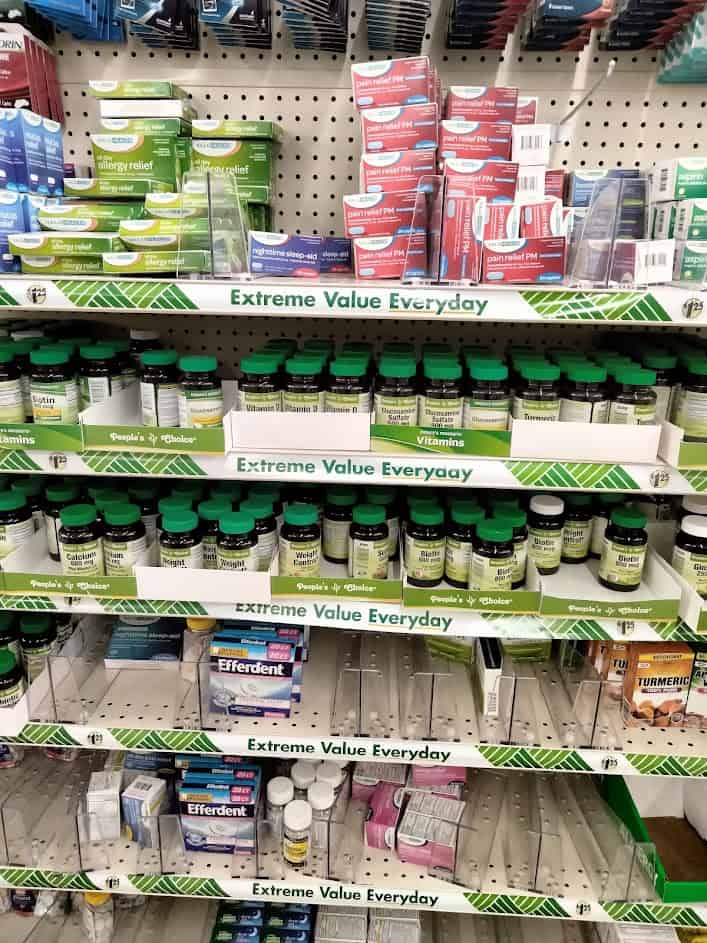
As long as you are looking at the labels and making sure it is made in the USA, doesn’t have wild claims of cures, and has the ingredients listed on the label, you should be fine with your purchase at the Dollar Tree.
On my most recent Dollar Tree visit, I noticed that most of what they carry is mostly individual vitamins like Vitamin D, calcium, and melatonin, and not multivitamins. This is good because we know that multivitamins aren’t really effective.
What about Rexall Brand at Dollar General?
Over the years I have come to depend on the Rexall Brand of vitamins from Dollar General. As previously mentioned, I regularly take a magnesium supplement. I have tried expensive name brands, pharmacy store brands like CVS, and now I buy them from Dollar General.
The main reasons for the switch are price and additives. I went through a time where I was limiting my lactose intake due to a possible allergy and found that most of the bigger brands included things like soy, gluten, lactose, milk or milk derivatives, and sugar.
The Rexall brand clearly states on all their packaging that it does not include these fillers in their products. Now almost every commercially available vitamin will have a list of those fillers like cellulose because that is what helps keep the vitamin in the pill or tablet form. My concern was only the possible allergens that are in the pills.
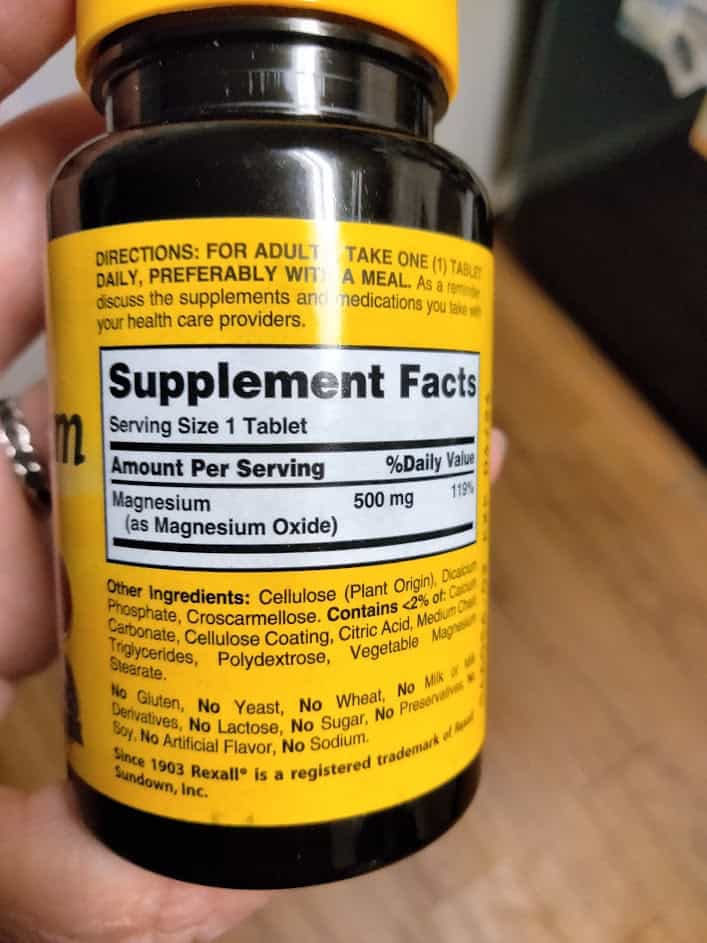
After taking different brands, the Rexall brand just worked the best for me and I could easily see the effects. This may be different for you based on your needs and situtation.
The Rexall brand is actually a very well-known brand of pharmaceutical products and goes all the way back to 1903. For over 50 years Rexall was actually the name of a drug store that had over 12,000 locations in the US. (Fun fact: in 1957, Rexall tried out a new type of convenience store in Southern California and later determined it was not profitable and sold it off to the head of the division Joe Coulumbe. These stores were later re-branded to become Trader Joe’s.)
Rexall was eventually acquired by Sundown in 1985 and produced supplements under the Sundown-Rexall brand name. In 2010, Dollar General licensed the Rexall name from McKesson corporation (well-known healthcare giant) and is now the exclusive retailer of the Rexall brand.
Is it Worth it to buy Cheap Vitamins?
If you have made it this far and I really hope you have, you head is probably swimming with the huge amount of information that was given about vitamins.
The main takeaway here is that if you think you might need a vitamin supplement, check with your doctor and take a blood test first.
Then if the test says that you are lacking in vitamin, opt to buy individual vitamins instead of a daily multivitamin. Whether you buy name brand, generic brand, or the dollar store variety is totally up to you, but just know that paying more for the vitamins won’t make them work better.
I have decided to save money on vitamins by utilizing the Rexall brand at Dollar General on my Saturday morning household items shopping trips. If you read “How to Save Money on Household Items,” you know that shopping on Saturdays at Dollar General will get you an extra $5 off when you spend $25 or more. I like to wait until I know that my total will be over $25 before I go, so I usually only make the trip about every other Saturday.
For more fun money savings tips, check out “Are Dollar Tree Sunglasses safe?“

